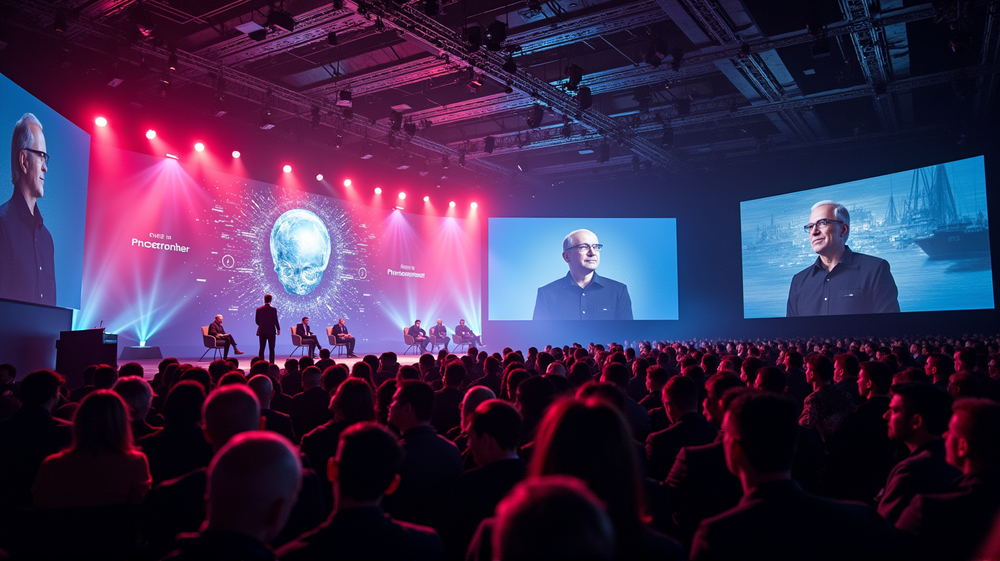The Stage is Set for a High-Stakes Discussion
In an intense and enlightening debate held on a Monday evening, tech executives and a seasoned journalist clashed over the pressing issues surrounding corporate responsibility in Big Tech, AI regulations, and the towering influence of a select few tech giants. According to The Stanford Daily, the discourse raised critical questions about democracy’s future and the safety of our children in an AI-driven world.
The Voices of Power: Diverging Perspectives
The discussion, showcasing the might of Zoom CEO Eric Yuan and Pinterest CEO Bill Ready, alongside the unyielding scrutiny of technology journalist Kara Swisher, opened with diverging views on AI’s place in society. While Yuan defended the necessity of resource-laden tech giants in AI development, Swisher’s rebuttal was sharp, echoing warnings from history about unchecked monopolies.
An Oasis in Tech: A Model of Positivity?
Bill Ready shed light on Pinterest’s unique stance as an antidote to digital toxicity, particularly for the young Gen Z audience. His company’s strategy of prioritizing private accounts for users under 16 drew attention as a business model grounded in positivity which surprisingly aligns both profit and social responsibility. Can the rest of the industry follow suit?
Education vs. Regulation: Striking a Balance
As the dialogue progressed, the panelists shifted focus to the vital role of education in fostering digital literacy for the AI generation. Yuan’s emphasis on educational reforms was met with skepticism by Ready, who argued that education alone won’t suffice. He pointed to the need for a collective approach, referencing the struggles faced by today’s youth in navigating social media’s omnipresence.
The Content Conundrum: Rethinking Section 230
Sect. 230 of the Communications Decency Act, a decades-old shield for online platforms from user-generated content liability, found itself under the microscope. Providing differing strategies, Ready envisioned a harmonious regulatory landscape with “crash test ratings,” while Swisher underscored the importance of vigilant user engagement in the age of automation.
AI: Innovation or Polarization?
The evening’s most provocative dialog centered on AI’s potential dual nature as either a democratizing force or a polarizing weapon. Ready’s insights on AI’s innate tendency to magnify societal divisions sparked a contemplative reflection on the ethical labor behind tuning algorithms—an editorial act with monumental repercussions.
The Final Call: An Empowered Audience
Wrapping up the thought-provoking exchange, Kara Swisher issued a rallying cry to the assembled students, urging them to remain vigilant and empowered, unswayed by Big Tech’s narratives about invulnerability. Her inspirational words were a fitting end to an evening that underscored the power and responsibility we hold in shaping technology’s path in society.













